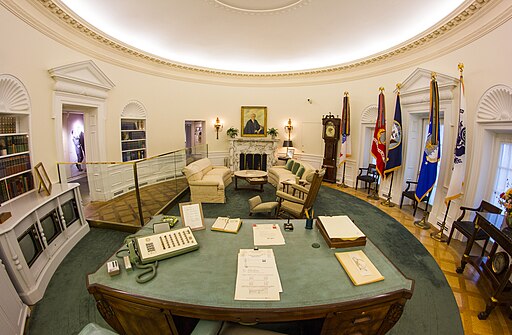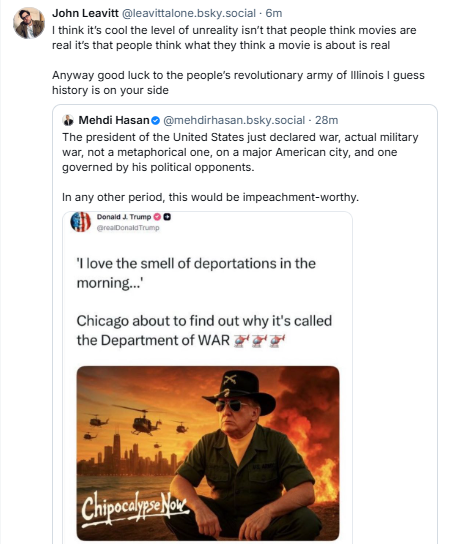I was talking with a writer friend in the U.S. the other day, someone I've known for years and whose work I've long admired. They mentioned that they've been finding it difficult to write lately, because of the state of their country and the world in general. They feel pressure to write something that would, even in some small way, make things less terrible. To write something meaningful and valuable to the struggle. So they struggle to write.
It's a conversation I've had with many writer friends over the last few years – actually, over the last few decades, because the world has always been on fire. But more frequently over the last few years.
I told my friend that, for whatever reason, I have not felt that kind of pressure to write with the times in mind. Maybe, I said, it's because I keep noticing how my values have a way of showing up in whatever I write without my having to think about it; that morning, I had been working on a scene set in the 16th century, and realized that a character's bitter speech about the geopolitics of that time could have been me talking about the war in Ukraine.
And yes, that's true (and not just for me). But I felt there was something missing from that explanation. After our conversation, I kept thinking about how my own writing practice has been in 2025.

Don't get me wrong: I have my challenges with productivity. I'm more distractible than I used to be, slower and more foggy of brain, and while some of that may be perimenopause, burnout or lingering effects of covid, I know at least part is the effect on my brain of living in a state of shock, disgust, horror and fear for the future all the damn time.
But I have not felt pressure to write in a more overtly antifascist way, or to write with a certain political message in mind. I haven't felt pressure to write something Great or Important. I haven't even felt the drive to write to reach out to some reader somewhere through my work, to let them know they're not alone, and make their day better. All of those are perfectly valid motivations, and I have definitely felt them all at various stages of my career. But I don't really notice them driving me lately.
Instead, what I seem to be doing is crawling more deeply inside prose and narrative. Instead of bouncing on the loud and glaring surface of life, I want to inhabit characters and worlds and words, to use my craft in ways I haven't before, to revise and revise and revise until I get to a sentence that feels true. To use everything I've learned so far, and to learn more. It feels like burrowing into a flower.
Perhaps, now that I put it that way, one could see that as hiding in the work – but it doesn't feel like hiding, to me. It doesn't feel like escape, either (although I also view escapism as a perfectly valid motivation for fiction). It feels like … looking for something.
It feels connected to the desire for humanity and physical experience as a reaction to too much doomscrolling punctuated with AI slop. And to the love of books, which are under threat on multiple fronts. My reading life for the last few months has been a nonstop obsession with the novels of John Le Carré. There's a deep humanity and realism in his work (by which I don't mean the same thing as "realistic"; realism, at least the way I want to use the word today, can be a mode in fantastic literature).
Realism is a counter, a corrective, an antidote to the hyperreality we're all living in. In 2025 we spend much of our time not only in the hyperreality of cyberspace, but in a gaudy and strange news environment.
In his essay “Travels in Hyperreality”, Umberto Eco wrote about the American passion for simulacra that recreate the real thing but MORE – brighter, shinier, simpler – than the real thing could ever be. This kind of hyperreality – the hyperreality of Las Vegas and Disney theme parks – has finally completely colonized American political life, and since American political life affects us all, it feels inescapable. (Which raises the question of what “escapism” looks like in such an environment, and which direction we run.)

Realism in fiction (or any art form), paradoxically, calls attention to its artificiality, to the act of creation, to the existence of a (human) creator. Whenever I read this line on the first page of The Russia House – "After fierce rain showers all day long, a false sunlight was blazing in the puddles and raising vapour from the pavements." – it stops me in my tracks, makes me think, wow, that's a moment captured, what a miracle! Realism understands that the deeper we try to burrow into a feeling or a place or a mind, the more the difficulty of perceiving and communicating anything becomes clear to us.
Hyperreality, on the other hand, declares itself to be more than real, better than real, so real it'll make you forget about reality. The White House is transforming before our eyes into a painted plastic model of what the White House signifies, covered in cheap gold dictator tat. Everything is surface, brittle, shiny. Everything is a lie because there is no such thing as the truth. There is no political consequence to contradiction because hyperreality can be composed of simultaneous layers that shift like a hologram. We are watching a video of the US government blowing up a boat full of drug smugglers; we are watching a video of the US government blowing up a boat full of migrants; we are watching a video of something else entirely; we are watching an AI created video. We are doing this all at the same time and the truth under the surface is, or at least, can feel, inaccessible. The map has completely covered the territory and melted onto it, replaced it.

I've been using the term "realism" a bit lazily, because this is a newsletter about how I'm approaching my writing practice these days, not an essay about movements and debates in 20th century literature. But now that I'm thinking about Eco, I'm thinking about the ways in which you can find both social realism and postmodernism (which he called "a way of operating") in his work. Here's a bit from his Reflections on The Name of the Rose:
A text is meant to be an experience of transformation for its reader. You believe you want sex and a criminal plot in which the guilty party is discovered at the end, and all with plenty of action. But at the same time you would be ashamed to accept old-fashioned rubbish made up of the living dead, nightmare abbeys and black penitents. All right, then, I will give you Latin, practically no women, lots of theology, gallons of blood in Grand Guignol style, to make you say, "But all this is false; I refuse to accept it!" And at this point you will have to be mine, and feel the thrill of God's infinite omnipotence, which makes the world's order vain. And then, if you are good, you will realize how I lured you into this trap, because I was really telling you about it at every step, I was carefully warning you that I was dragging you to your damnation; but the fine thing about pacts with the devil is that when you sign them you are well aware of their conditions. Otherwise, why would you be recompensed with hell?
Fiction that leads us to "this story is made up!" transforms our relationship with reality, not hyperreality. (This is one reason I like writing historical fantasy.) The way that Eco tells stories is not distinct from his ethics or his politics. His interest in human reason and its relationship with the truth runs through all his fiction, and that interest is inherently antifascist. The Name of the Rose and How to Spot a Fascist do not just happen to be written by the same author; they're part of the same project. (And to get back to the point earlier about how our interests and values suffuse our stories, The Name of the Rose is a murder mystery about monks that is also about uses and limits of reason, and is also about the corruption of institutions, poverty as structural oppression, and the banning of books.)
Wow, this has been a long journey to get to "why don't I feel pressure to write Message Fiction right now?"
But I think this is it. I feel drawn to do what I do best, which is tell stories that interpret human reality as thoughtfully as I can. My forthcoming novel Mercutio (which is, probably not coincidentally, my most obviously Eco-inspired novel) was conceived and written with no conscious message at all, no conscious desire to comment on current events, unlike some of my other books. (I hasten to say that this is not a declaration that the work has no such connections or that it is not political; as I said, the connections tend to emerge anyway, and all work is political, and certainly politicized.)
I am fully aware of the excuse trap of saying "true resistance is [whatever I feel like doing anyway.]" I do believe that storytelling can be antifascist in its bones even when it is not obviously so in its message. But that doesn't make it a replacement for the daily work to save lives and protect the innocent that we should all be doing as citizens and decent human beings, in our communities and in relation to our governments, to whatever degree we are able.
I’ll be back in two weeks, with a (hopefully lighter and shorter!) update on the production work for Mercutio, and some events coming up in October. It is also highly likely I’ll subject everyone to my thoughts on the various adaptations of Le Carré’s work at some point, as that obsession shows no signs of abating. Thanks for reading! Please share this newsletter with anyone you think might be interested.
And please reply, if you like, to let me know how your own reading and/or writing or other creative work has shifted lately in response to the onslaught of bad political news — are you burrowing into spy stories, like me, or looking for something inspirational? It’s interesting how we can have different reactions at different points in time, and it’s very personal.
You just read issue #44 of Kate Heartfield's Newsletter. You can also browse the full archives of this newsletter.
